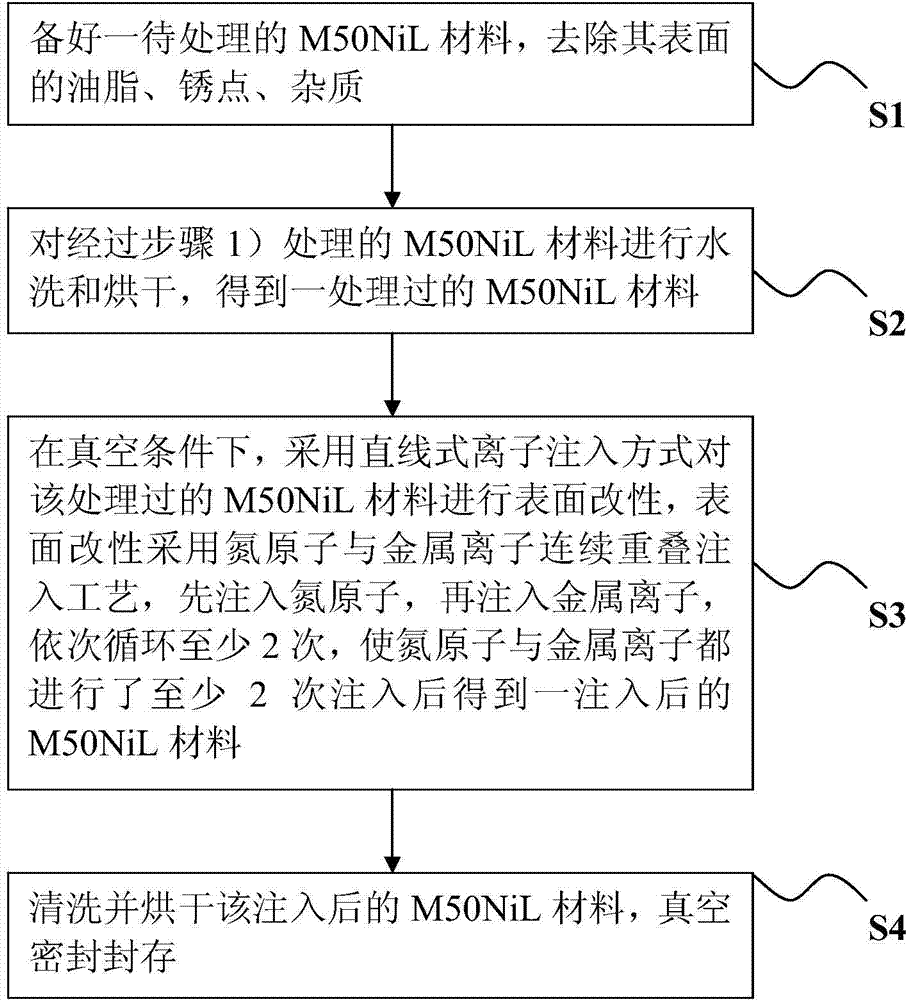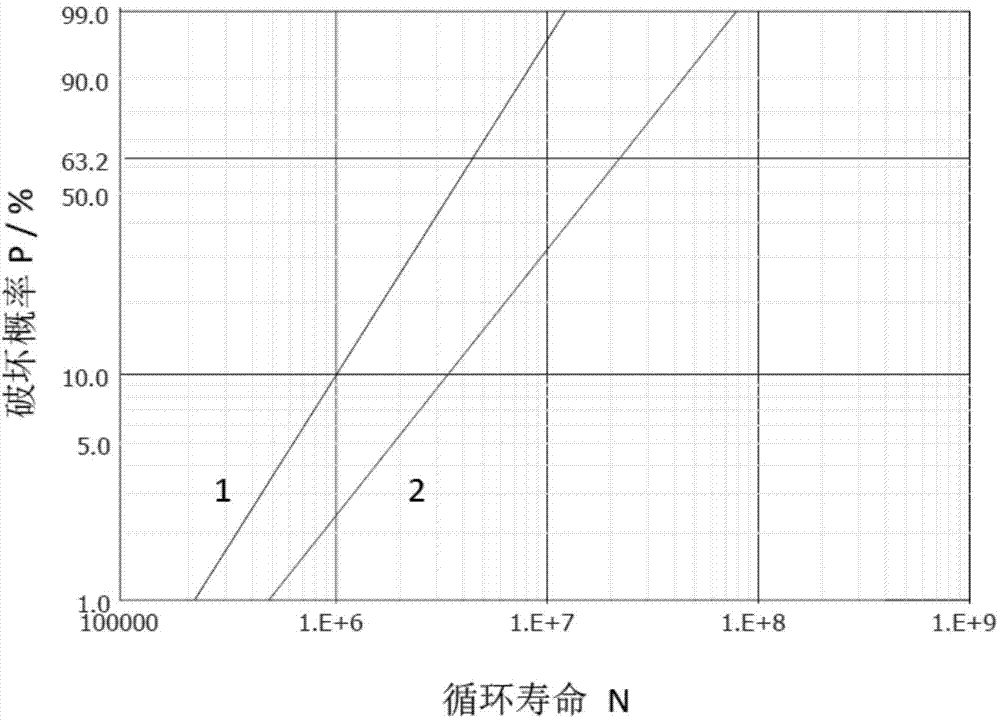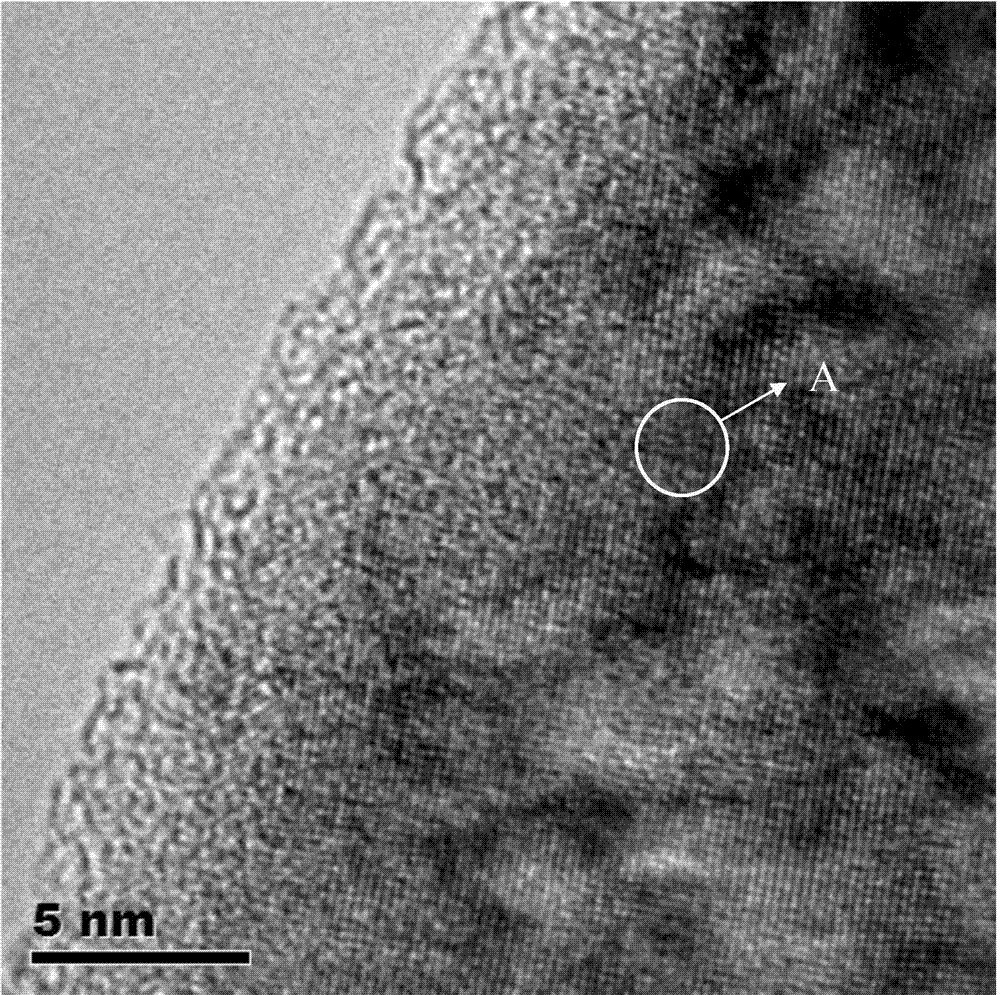Linear ion implantation surface modification method of M50NiL material
A surface modification and ion implantation technology, applied in ion implantation plating, metal material coating process, coating, etc., can solve the problems of material mechanical properties, bombardment damage, etc., to meet performance requirements, improve surface state, The effect of excellent contact fatigue resistance
- Summary
- Abstract
- Description
- Claims
- Application Information
AI Technical Summary
Problems solved by technology
Method used
Image
Examples
specific Embodiment approach
[0044] Step 1) prepare a M50NiL material to be processed,
[0045] Remove the grease on its surface: first remove the grease on the surface of the M50NiL material to be treated with a metal degreasing solvent, then soak it in non-polluting tetrachlorethylene for 20 to 30 minutes, take it out, and use rice paper to absorb the residual solvent. Then wipe the surface of the material with absorbent cotton, and finally wipe it with a clean silk cloth; the metal degreasing solvent is a commercially available common metal degreasing solvent, and its ingredients include sodium hydroxide, sodium carbonate, sodium phosphate decahydrate, sodium silicate, washing Agents, corrosion inhibitors, solvent water, etc.; tetrachlorethylene for cleaning can also be replaced by other organic solvents.
[0046] Remove the rust spots on the surface of the M50NiL material: soak and clean the M50NiL material with a metal cleaning agent (metal rust remover) with rust removal function for 10-20 minutes, ...
Embodiment 1
[0054] In this embodiment, nitrogen ions and zirconium ions are used to modify the surface of the M50NiL material, and three implants are performed. The zirconium ions can be equally replaced with titanium ions, molybdenum ions, and chromium ions, and various parameters (such as implantation energy, implantation dose, etc.) remain unchanged.
[0055] Step 1) Prepare a M50NiL material to be treated, first use a metal degreasing solvent to remove the grease on the surface of the M50NiL material to be treated, then put it in non-polluting tetrachlorethylene for 20 minutes, take it out, and absorb it with rice paper If the solvent remains, wipe the surface of the material with absorbent cotton, and finally wipe it with a clean silk cloth; soak and clean the M50NiL material with a metal cleaner with rust removal function for 10 minutes, so that there are no micro rust spots on the surface; put the M50NiL material in acetone , take it out after ultrasonic cleaning for 20 minutes, an...
Embodiment 2
[0060] In this embodiment, nitrogen ions and zirconium ions were used to modify the surface of the M50NiL material, and four implants were performed. The zirconium ions can be equally replaced with titanium ions, molybdenum ions, and chromium ions, and various parameters (such as implantation energy, implantation dose, etc.) remain unchanged.
[0061] Step 1) Prepare a M50NiL material to be treated, first use a metal degreasing solvent to remove the grease on the surface of the M50NiL material to be treated, then put it in non-polluting tetrachlorethylene for 30 minutes, take it out, and absorb it with rice paper If the solvent remains, wipe the surface of the material with absorbent cotton, and finally wipe it with a clean silk cloth; soak and clean the M50NiL material with a metal cleaner with rust removal function for 20 minutes to make the surface free of micro rust spots; put the M50NiL material in acetone , take it out after ultrasonic cleaning for 40 minutes, and dry it...
PUM
 Login to View More
Login to View More Abstract
Description
Claims
Application Information
 Login to View More
Login to View More - Generate Ideas
- Intellectual Property
- Life Sciences
- Materials
- Tech Scout
- Unparalleled Data Quality
- Higher Quality Content
- 60% Fewer Hallucinations
Browse by: Latest US Patents, China's latest patents, Technical Efficacy Thesaurus, Application Domain, Technology Topic, Popular Technical Reports.
© 2025 PatSnap. All rights reserved.Legal|Privacy policy|Modern Slavery Act Transparency Statement|Sitemap|About US| Contact US: help@patsnap.com



